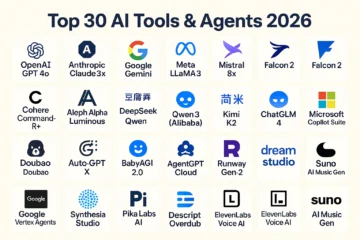
AI Takes Over: Netflix Lets Go of Game Developers
AI Takes Over: Netflix Lets Go of Game Developers
In a strategic pivot that has caught the attention of both the tech and gaming industries, Netflix has decided to replace a significant portion of its game developers with AI technology. This decision, announced in late 2024, was spearheaded by Mike Verdu, who transitioned to the role of Vice President of GenAI for Games at Netflix. This move marks a significant shift in how Netflix perceives game development, especially considering that less than 1% of its subscribers engage with its gaming offerings daily, as per CNBC.
Why AI in Game Development?
The streaming giant’s decision to employ AI over human developers is seen as an attempt to revolutionize game creation and player engagement. Verdu described this as a “once in a generation transformation” for gaming. AI is already making inroads in game development, from generating procedural content in games like “No Man’s Sky” to Ubisoft’s “Ghostwriter” AI tool, which helps script dialogues for NPCs (Non-Player Characters).
Real-World Example: Procedural Generation
“No Man’s Sky” by Hello Games is a prime example where AI-driven procedural generation creates an infinite universe for players to explore. Each planet, creature, and ecosystem is uniquely generated by algorithms, showcasing how AI can expand the scope of game worlds beyond what human teams could achieve alone.
Economic and Creative Impacts
Opting for AI over human developers could significantly cut costs for Netflix. While a developer might earn a substantial salary, an AI system, once developed, incurs minimal ongoing costs. However, this shift brings up concerns regarding job displacement and the creative aspects of game development. Critics argue that AI might lack the nuanced, emotional storytelling that human developers bring to games.
Data Insight:
According to a report by GDC Vault, 60% of game developers believe AI will significantly impact game development within the next five years, particularly in areas like game mechanics, NPC behavior, and personalization. This data underscores a growing acceptance and expectation of AI’s role in gaming.
Challenges Ahead
Netflix’s journey into AI-driven game development isn’t without its challenges. The failure of its previous in-house studio, Team Blue, to produce a hit game illustrates the complexities of game development. Video games demand a unique blend of storytelling, gameplay mechanics, and player interaction that AI might not fully replicate. Moreover, there’s a cultural and community aspect to gaming that human developers often bring to the table.
Looking Toward the Future
As Netflix navigates this new terrain, the gaming industry watches keenly. Will AI be able to craft experiences that resonate with players, or will it merely provide a template for human creativity to expand upon? The answer might lie in a hybrid approach where AI assists in the grunt work, allowing human developers to focus on creativity and innovation. The coming years will likely reveal more about how AI can genuinely integrate into the art of game-making, possibly setting new standards for entertainment across various platforms.









